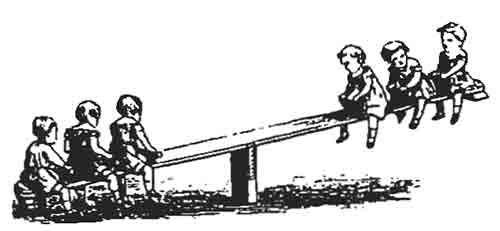Verb Endins

John M Tait (Scotland)
The endins o waek verbs — that is, verbs at forms thair past tenses bi endins (like “kep”, “keppit”) raither nor internal chynges (like “greet”, “grat”) — is maistlie as follaes:
1. In modren spaek, only verbs endin in -P, -T, -K, -B, -D, an G haes the endin -IT, e.g. “keppit”, “howkit”, “flittit”, “biggit”, “rubbit”, “luggit”, etc. This is true asweel whaur the present tense haes thae letters follaed bi E — e.g. “haut”, “gypit”, “rakit”, “fadit” — except -GE, whaur the G haes a different (“j”) soond — sae “caged”, “paged”, “raged”.
2. In tradeitional Scots gremmar, Latinate verbs endin in -TE disna add naething i the past participle, e.g. past tense “I appreciatit that”, but past participle: “that wad be appreciate.” (This uiss is nou thocht ti be auld farrant-kynd, an maistlie charactereistic o leiterary prose — e.g. Lorimer).
3. Verbs endin in -F, -SS, -EN, -L, -SH, -TCH, -CH, an sometimes -R, maistlie haes the endin -T, e.g. “fasht”, “kent”, “raivelt”, “birlt”, “speirt”, “pootcht”, “brocht”. In maist cases, a dooble consonant is made single afore the T, e.g. “coft”, “past”, “telt” (but “killt”).
4. Verbs endin in -LE taks the endin -ELT, sae “ettelt”, “hirpelt”.
5. Verbs endin in an unstresst -IE or -Y uisuallie hips it an eiks -IT, sae worrit, mairit.
6. Ithers (includin verbs endin in -SE an GE, whaur the S uisuallie haes a “z”, an the G a “j”, soond) maistlie haes endins in -ED, e.g. “daured”, “muved”, “screived”, “kamed”, “hained”, “cawed”, “rowed”, “poued”, “raged”, “kythed”, “jaloused”, “lowsed”, “supposed”, etc. A kenspeckle exception is “fremmit” (at haes, tho, a variant “fremd”.)
7. Verbs endin in stresst -EE hips the E frae the -ED endin an replaces it bi an apostrophe, e.g. “gree’d”, “dree’d”, “pree’d”, etc.
In general, it’s best ti uise pronunciation as a guide raither nor eik the -IT endin ti verbs like “kythit”, “jalousit”, “tramplit”, “followit”, “luvit”, etc. (better “kythed”, “jaloused”, “trampelt”, “follaed”, “loved”).
Next: Lint
Previous: And the Muse went Weaving Free
Contents: Ullans: The Magazine for Ulster-Scots, Nummer 7 Wunter 1999

